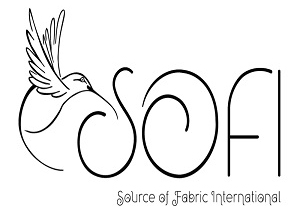In the ever-evolving world of fashion, jean fabric remains a staple that never goes out of style. Its versatility and durability make it a favorite among designers and consumers alike. For businesses looking to tap into this enduring trend, sourcing high-quality jean fabric at wholesale prices can be a game changer.
Wholesale fabric opens up a realm of possibilities for retailers and manufacturers. It allows them to access a wide range of styles, colors, and weights, catering to diverse customer preferences. By understanding the nuances of the wholesale market, businesses can not only save costs but also elevate their product offerings, ensuring they stay ahead in a competitive landscape.
Overview of Jean Fabric Wholesale
Jean fabric, commonly known for its durability and versatility, remains a key material in the fashion industry. Wholesale sourcing provides businesses access to high-quality materials at competitive rates, allowing them to enhance their product lines.
Sourcing from wholesalers often leads to significant cost savings, making it easier for retailers and manufacturers to meet diverse customer needs. Businesses can select from a wide range of denim styles, including stretch, raw, and colored options, to align with current fashion trends.
Understanding the wholesale market involves knowing reliable suppliers. Researching thoroughly and assessing the supplier’s reputation ensures quality and consistency. Bulk purchasing from reputable sources often results in lower prices per yard and better availability.
Finally, maintaining strong relationships with suppliers can lead to better deals and timely deliveries, which support steady business operations.
Types of Jean Fabrics Available
Various types of jean fabrics cater to different fashion needs. Each fabric offers unique properties and characteristics, appealing to a wide range of consumers.
Denim
Denim is a sturdy cotton twill fabric characterized by its distinctive diagonal weave. It’s commonly used in jeans and other apparel, providing durability and longevity. Different weights of denim enhance its usability; lighter weights work well for summer wear, while heavier weights suit colder months. Denim can be finished in various ways, such as stone-washed or acid-washed, to achieve different looks and textures. Colors can vary widely, from traditional indigo to trendy pastels, allowing for versatility in design.
Stretch Denim
Stretch denim incorporates a blend of cotton and stretchy fibers, such as spandex or elastane. This fabric type offers additional comfort and flexibility, making it a popular choice for fitted jeans. The elasticity allows wearers to move freely without compromising style. Stretch denim is available in various styles, including skinny, bootcut, and flared. Brands often use this fabric in athleisure and casual wear lines, appealing to customers who prefer a comfortable fit without sacrificing fashion.
Raw Denim
Raw denim, or unwashed denim, maintains its original color and texture. It’s considered a premium option due to its authenticity and durability. Unlike other finishes, raw denim ages uniquely, developing a personalized fade pattern based on the wearer’s activities. This aging process creates a distinct look that many denim enthusiasts appreciate. Typically, raw denim is heavier and has a stiff texture, requiring a break-in period to achieve the desired comfort level. It’s often favored in high-end or artisanal jean lines.
Benefits of Buying Jean Fabric Wholesale
Buying wholesale jean fabric offers significant advantages for retailers and manufacturers looking to enhance their inventory and appeal to customers.
Cost Savings
Retailers experience substantial cost benefits by purchasing bulk jean fabric. Lower price points from wholesale suppliers lead to considerable savings compared to retail purchases. Bulk buying typically involves discounts for large quantities, which can reduce overall expenses. This savings can enable businesses to allocate funds to other important areas, such as marketing or product development. For example, if a retailer spends $5,000 on fabric at retail prices, that expense might drop to $3,500 or lower when sourced wholesale, allowing for increased profit margins.
Variety and Selection
Wholesale jean fabric provides access to an extensive range of options. Businesses can choose from different styles, weights, and colors, catering to specific fashion trends and consumer preferences. Options such as stretch denim, colored varieties, and different finishes allow for versatile product offerings. Retailers are more likely to attract diverse customer bases by stocking various types of denim. For instance, a store may offer lightweight options for summer and heavier weights for colder months, ensuring they meet customer demands throughout the year. This variety ultimately helps build a unique brand identity in the competitive fashion market.
Tips for Purchasing Jean Fabric Wholesale
Purchasing jean fabric wholesale requires careful consideration of suppliers and fabric quality. Retailers can ensure they make informed choices by following specific guidelines.
Finding Reliable Suppliers
Finding trustworthy suppliers is crucial for obtaining quality jean fabric at wholesale prices. Start by researching potential suppliers through online directories and trade shows. Verify their reputation by checking customer reviews and testimonials. Look for suppliers with a solid track record in the industry. It’s beneficial to request samples before committing to larger orders. Doing this allows for evaluation of the fabric’s quality and suitability for specific needs. Establish clear communication channels to address any concerns or questions. Building strong relationships with suppliers can lead to better deals and priority access to new products.
Understanding Fabric Quality
Understanding fabric quality significantly impacts the end product. Evaluate the weight of the denim, as heavier options provide durability, while lighter options offer comfort. Check for consistency in color and texture to ensure a high-quality appearance. Assess the fabric’s stretch properties, if applicable, as higher-quality stretch denim maintains its shape over time. Review information on dyeing techniques and finishing processes, as these influence both the look and feel of the fabric. Certifications, such as Oeko-Tex, indicate that the fabric meets certain safety and environmental standards. Prioritize quality in jean fabric to enhance product offerings and customer satisfaction.
Trends in Jean Fabric Wholesale
Retailers must stay informed about current trends in jean fabric wholesale to align their offerings with market demands and customer preferences. Understanding these trends helps businesses position themselves competitively. Two key areas gaining attention are eco-friendly options and customization trends.
Eco-Friendly Options
Eco-friendly jean fabric options are becoming essential in the wholesale market. Many manufacturers now produce denim using sustainable practices, such as organic cotton, recycled fibers, and environmentally friendly dyeing processes. Retailers can meet consumer demand by sourcing these materials, appealing to environmentally conscious shoppers. Certifications like Global Organic Textile Standard (GOTS) or Oeko-Tex indicate adherence to high environmental standards. Businesses focusing on eco-friendly options not only enhance their product lines but also strengthen their brand image by showing commitment to sustainability.
Customization Trends
Customization in jean fabric is gaining traction among consumers. Retailers offering personalized denim options attract customers seeking unique styles. This includes custom fits, colors, and embroidery services. Wholesale suppliers often collaborate with brands to provide personalized fabric solutions. By prioritizing customization, retailers can differentiate themselves from competitors and cater to individual preferences. Providing these unique offerings enhances customer loyalty and supports higher price points, contributing to overall business growth.
Conclusion
The wholesale market for jean fabric presents a wealth of opportunities for retailers and manufacturers alike. By leveraging the versatility and durability of denim, businesses can enhance their product lines while catering to diverse consumer preferences. Incorporating wholesale fabric online, wholesale linen fabric, bolts of fabric wholesale, and wholesale cotton fabric into their offerings can expand their reach and attract a broader customer base. Prioritizing quality and maintaining strong supplier relationships are crucial steps toward achieving success in this competitive landscape.
Staying attuned to current trends such as eco-friendly options and customization can further elevate a brand’s appeal. As the demand for sustainable and personalized products grows, those who adapt will thrive. Embracing these strategies will not only lead to cost savings but also position businesses to meet the evolving needs of their customers effectively.
Frequently Asked Questions
What is jean fabric, and why is it popular in fashion?
Jean fabric, often known as denim, is a sturdy cotton twill fabric known for its durability and versatility. Its popularity in fashion stems from its ability to cater to different styles, from casual to formal, making it a staple in wardrobes worldwide.
What are the benefits of buying jean fabric wholesale?
Buying jean fabric wholesale allows retailers to access a variety of styles at lower prices. This can lead to significant cost savings, enabling businesses to invest in marketing or product development while offering diverse options to attract customers.
What types of jean fabrics are available in wholesale markets?
Wholesale markets offer various jean fabrics, including stretch denim for comfort, raw denim for authenticity, and colored options to meet current fashion trends. These choices help retailers cater to different customer preferences and styles.
How can businesses find reliable jean fabric suppliers?
Businesses can find reliable suppliers by researching online directories, attending trade shows, checking customer reviews, and asking for fabric samples. Establishing strong relationships with these suppliers is key to ensuring quality and timely deliveries.
What should retailers consider when purchasing jean fabric?
Retailers should consider factors such as fabric quality, weight, color consistency, and stretch properties. Certifications like Oeko-Tex are also important to ensure high standards and consumer safety.
What are current trends in jean fabric wholesale?
Current trends in jean fabric wholesale include eco-friendly materials, such as organic cotton and recycled fibers, and customization options, like personalized fits and embroidery. These trends help retailers appeal to environmentally conscious shoppers and enhance customer loyalty.


